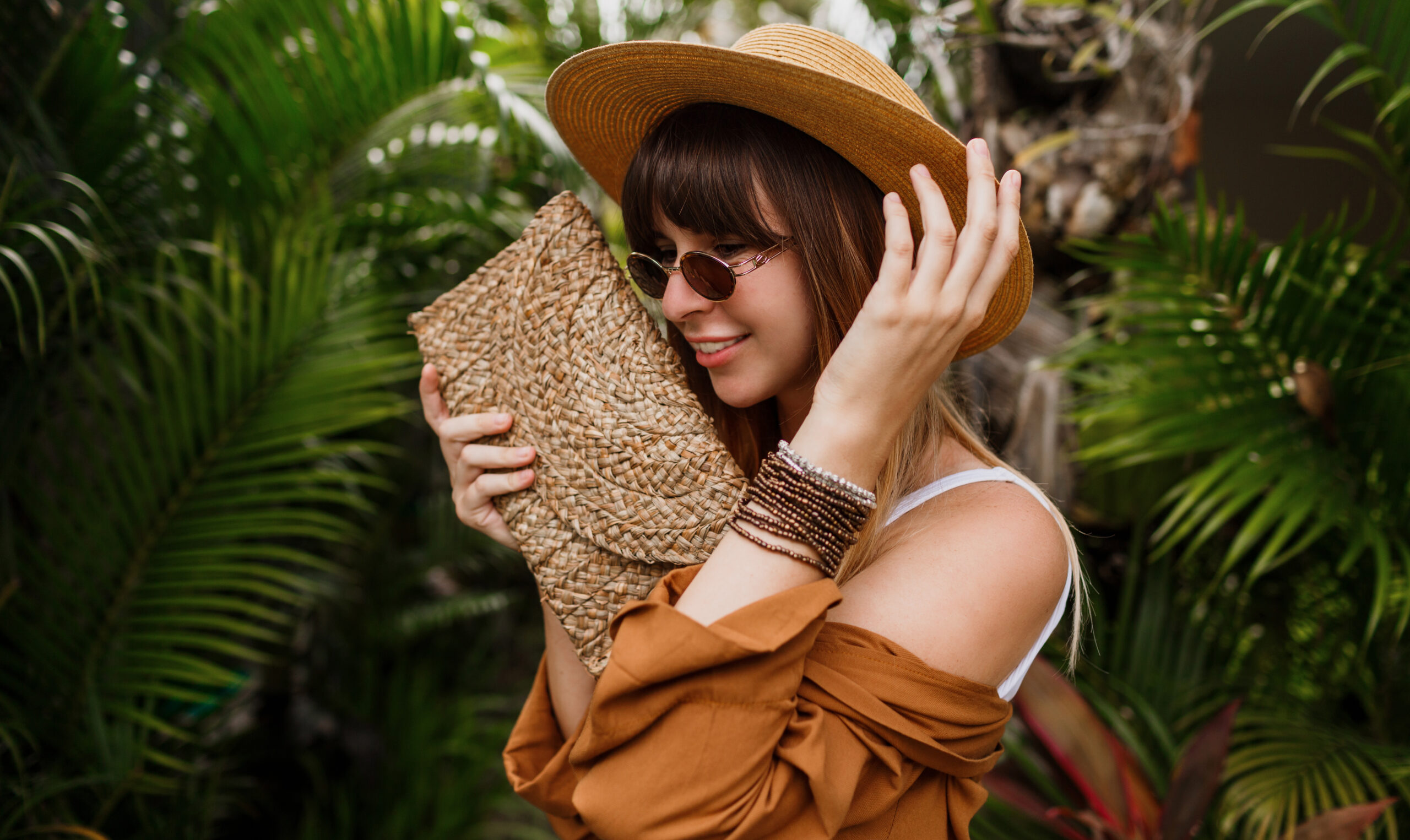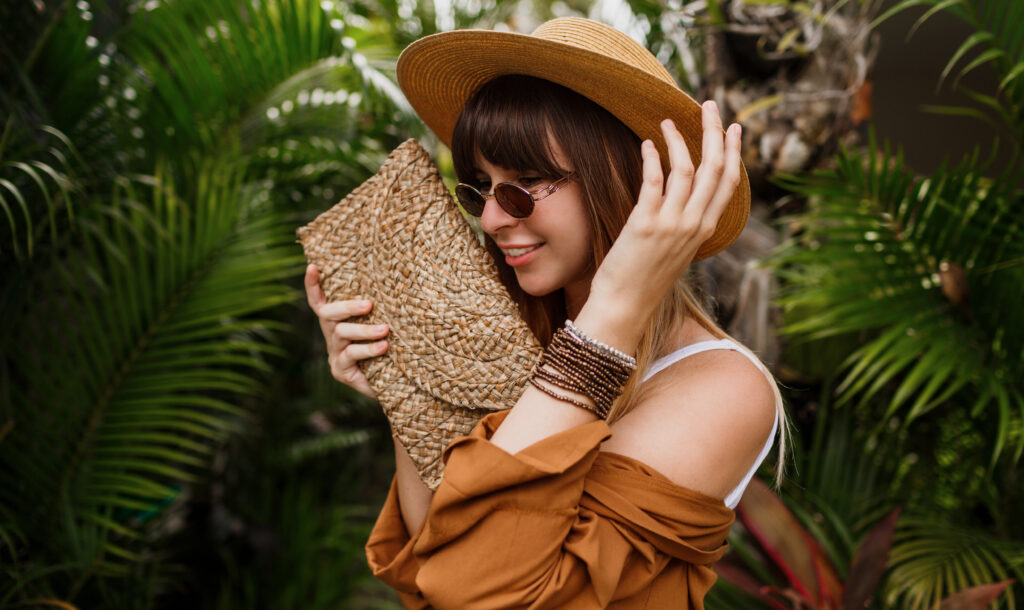Eco-Fashion Revolution from Stylish Bamboo Sunglasses to Hemp Hats

Introduction
In today’s fashion-forward world, sustainability is more than just a buzzword. It’s a lifestyle choice that many Americans are embracing, especially those on a journey of self-awareness and self-improvement. From bamboo sunglasses to hemp hats, sustainable accessories are making a statement, both in style and environmental impact.
Why Materials Matter in Sustainable Choices
Every product carries an environmental footprint, heavily influenced by the materials used in its creation. Traditional materials, such as cotton, often come with hidden costs: excessive water usage, reliance on pesticides, and significant carbon emissions during production. These practices can lead to detrimental effects like soil degradation and polluted waterways. However, the shift towards sustainable materials, like bamboo, offers a promising alternative. Bamboo stands out for its rapid growth and low water requirements. Moreover, sustainable production processes are designed to minimize carbon emissions and waste, often incorporating renewable energy sources. Many forward-thinking brands are also embracing recycling and upcycling, further reducing environmental impact. In essence, choosing products made from sustainable materials isn’t just about quality; it’s a conscious decision to support the planet’s health and longevity.
Ethical Production: More Than Just a Label
It’s not just about what the products are made of, but also how they’re made. In the realm of sustainable fashion and accessories, the term “ethical production” has evolved from being a mere buzzword to a non-negotiable standard. It’s a holistic approach that goes beyond the mere composition of products, delving deep into the very ethos of how they come into existence.
Fair Labor – Beyond the Price Tag
When one picks up a beautifully crafted accessory, it’s easy to overlook the hands that created it. However, the true value of a product isn’t just in its aesthetic or function but in the assurance that it was crafted under humane conditions. Ethical brands prioritize the welfare of their artisans. This means not only providing fair wages that reflect the skill and effort put into the product but also ensuring a safe and respectful working environment. It’s about recognizing that every product has a human story, and that story should be one of dignity and respect.
Transparency in the Digital Age
In today’s digital era, consumers crave transparency. They want to trace a product’s journey, from its origins to its final form. Responding to this, ethical brands are offering unprecedented clarity, using tools like QR codes, open forums, and detailed sourcing reports. This openness fosters trust and educates consumers, enabling informed choices. Ultimately, such transparency underscores a brand’s dedication to sustainability and ethical practices, assuring consumers that their purchases contribute to a better world.
Bamboo Sunglasses: The Eco-Friendly Trend Taking the Fashion World by Storm
The eyewear industry has seen a surge in innovation, with bamboo sunglasses emerging as a frontrunner in sustainable fashion. But what makes bamboo the material of choice for modern eyewear, and which brands are leading the charge?
1. Rapid Renewability: Bamboo is one of the fastest-growing plants on Earth. Some species can grow up to three feet in just 24 hours! This rapid renewability means that bamboo can be harvested frequently without causing harm to the ecosystem, making it a sustainable resource.
2. Carbon Sequestration: Bamboo forests have an incredible ability to absorb carbon dioxide, a major greenhouse gas, and produce 35% more oxygen than an equivalent stand of trees. By supporting bamboo products, consumers indirectly contribute to a reduction in atmospheric carbon dioxide.
3. Biodegradability: Unlike plastic frames, which can take hundreds of years to decompose, bamboo is biodegradable. If a pair of bamboo sunglasses were to be discarded, they would return to the earth without leaving a lasting footprint.
4. Unique Aesthetic Appeal: Bamboo sunglasses provide a distinct look. The natural grain and texture of bamboo ensure that no two pairs are exactly alike, offering a unique, earthy aesthetic that stands out.
5. Lightweight Comfort: Bamboo is notably lightweight, making bamboo sunglasses comfortable for extended wear. Their durability also ensures they can withstand the rigors of daily use.
Why Make the Switch?
Sustainability: Bamboo’s rapid growth and hemp’s resilience make them champions of sustainable fashion.
Lower Carbon Footprint: Supporting bamboo products means contributing to reduced atmospheric carbon dioxide.
Ethical Production: Choose products that tell a story of dignity, respect, and fair labor.
Transparency: Know the journey of your accessory, from its raw form to the masterpiece you wear.
FAQ
How do bamboo and hemp compare to other sustainable materials in terms of environmental impact?
Bamboo and hemp are among the top sustainable materials due to their low environmental impact. Bamboo’s rapid growth rate means it can be harvested frequently without depleting resources, and it requires minimal water and no pesticides. Hemp, similarly, is drought-resistant and can grow in various soil types without the need for synthetic fertilizers or pesticides. Compared to other sustainable materials like organic cotton or recycled polyester, bamboo and hemp often have a lower water footprint and fewer carbon emissions. However, it’s essential to consider the entire production process, as factors like transportation and processing can impact a material’s overall sustainability.
Are there any potential drawbacks or criticisms of bamboo and hemp as sustainable materials?
While bamboo and hemp have many environmental benefits, there are some criticisms. For bamboo, the processing method can impact its sustainability. The most common method, using chemicals to break down the bamboo, can be environmentally harmful. However, mechanical methods, which are more eco-friendly, are being developed. For hemp, while it has been praised for its low environmental impact, its association with marijuana has led to legal restrictions in some countries, limiting its widespread adoption. Additionally, as with any crop, monoculture farming of hemp can lead to soil degradation if not managed correctly.
How do I care for and maintain bamboo sunglasses and hemp hats to ensure they last?
For bamboo sunglasses:
Avoid exposing them to extreme temperatures, as this can warp the frames.Clean the lenses with a soft microfiber cloth to prevent scratches. Store them in a protective case when not in use. Avoid contact with saltwater, as it can damage the bamboo finish.
For hemp hats:
Hand wash with cold water using a mild detergent. Reshape the hat and let it air dry. Avoid wringing it out, as this can distort its shape. Store in a cool, dry place away from direct sunlight.
Where can I find sustainable accessories locally? Are there brick-and-mortar stores dedicated to eco-fashion?
Many cities now have eco-fashion boutiques or stores dedicated to sustainable products. These stores often carry a range of items, from clothing to accessories like bamboo sunglasses and hemp hats. Additionally, larger retailers are increasingly incorporating sustainable lines into their offerings due to growing consumer demand. It’s a good idea to check local directories or conduct a quick online search for “sustainable fashion stores” or “eco-fashion boutiques” in your area. Attending local eco-friendly or sustainability-themed events and markets can also introduce you to local artisans and brands that prioritize sustainability.
Read also the latest Bolg about Eco-friendly-kids-fashion/
Join the Movement!
Are you ready to be a part of the eco-fashion revolution? Dive deep into the world of sustainable accessories with us. Discover brands that prioritize the planet, learn about the benefits of sustainable materials, and make informed choices that reflect your values.
Eco-Fashion Revolution from Stylish Bamboo Sunglasses to Hemp Hats Read More »

